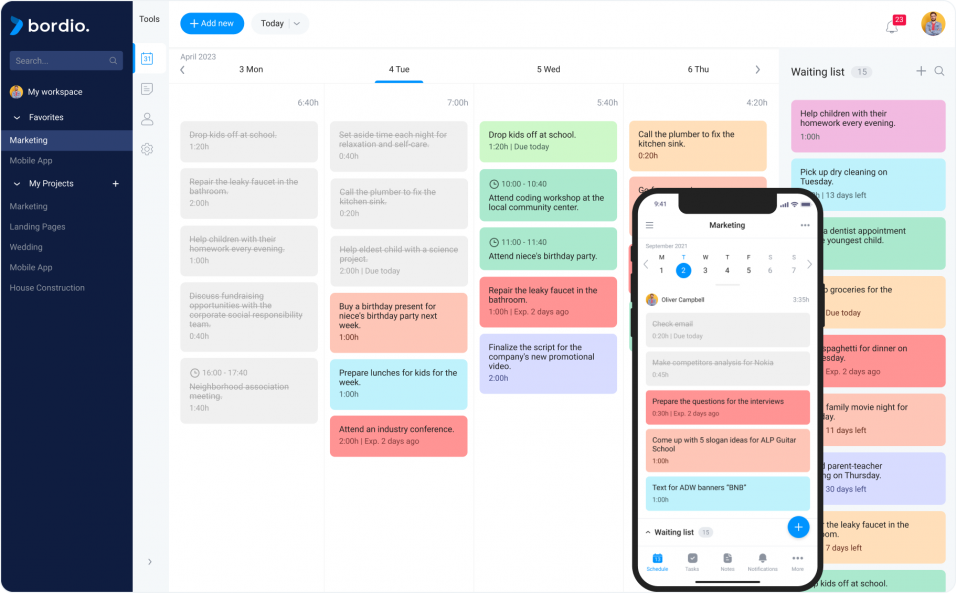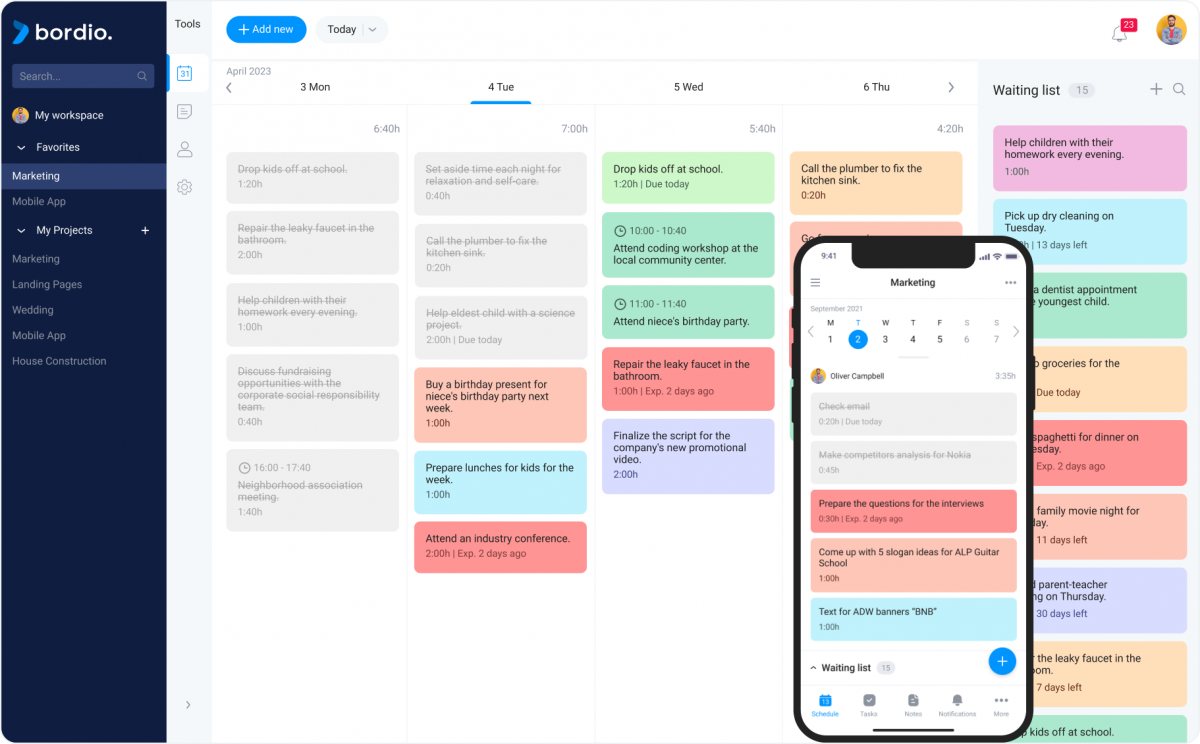
Introduction
Efficiency in work isn't simply about exerting more effort, it's predominantly about strategically applying your efforts. Amidst a host of factors that can dramatically boost your productivity, planning emerges as a crucial determinant. Planning, in essence, is all about identifying your goals and strategizing optimal ways to achieve them. This principle applies equally to professional scenarios and personal life. However, the influence of planning on productivity might not be immediately apparent to everyone. To shed some light on this connection, let's explore six compelling reasons why planning is an absolute game-changer for productivity.
Streamlining Task Prioritization
The premier benefit of planning lies in its inherent capability to streamline task prioritization. In our daily lives, we confront a multitude of tasks, each varying in importance and urgency. Without a plan, you might find yourself juggling these tasks haphazardly, resulting in suboptimal efficiency or even missed deadlines. Online planners can be an invaluable tool in this context, offering an organized platform to sort, prioritize, and track tasks. By clearly laying out tasks, their urgency, and importance, planning with the aid of online planners allows you to address the most critical tasks first, thereby ensuring their timely completion without compromising on quality.

Countering Procrastination
A universal adversary of productivity, procrastination often creeps in when tasks appear overly complex or vague. Planning can serve as a powerful antidote to procrastination. By dissecting larger tasks into smaller, digestible sub-tasks, and providing a clear trajectory towards completion, planning helps tasks seem less formidable. This strategic approach curbs the inclination to postpone tasks, thereby substantially bolstering productivity.
Diminishing Stress and Overload
The frantic tempo of modern life frequently induces a feeling of being overwhelmed. With an endless list of responsibilities and seemingly insufficient time, stress levels can escalate, impacting not only productivity but also your mental and physical well-being. Possessing a plan bestows you with a clear roadmap to navigate, significantly mitigating stress and overload. You have a precise understanding of what tasks to tackle and when, eliminating uncertainty and enabling a more seamless workflow.
Enhancing Time Utilization

As a finite and precious resource, time must be utilized optimally to maximize productivity. Planning aids in this by allowing you to assign suitable time slots for different tasks. It prevents you from dedicating excessive time to less critical tasks and running short of time for those with higher importance. Furthermore, effective planning helps ward off the pitfalls of multitasking - a deceptive productivity illusion. While attempting to juggle multiple tasks simultaneously might create an illusion of productivity, it often leads to more errors and less efficiency. Planning encourages focus on one task at a time, thereby amplifying overall productivity.
Promoting Purposeful Actions
Armed with a plan, your actions become intent-driven and oriented towards achieving specific goals. Each task you embark on is a stepping stone towards a larger goal. This sense of purpose can elevate motivation, determination, and as a result, productivity. It also safeguards you from being derailed by tasks that don't contribute to your primary objectives.
Enabling Performance Evaluation
Finally, planning is vital for monitoring performance and assessing progress. In the absence of a plan, you lack a benchmark against which to measure your productivity. A well-structured plan establishes benchmarks and key performance indicators that help track progress, spot areas needing enhancement, and acknowledge successes, irrespective of their size. Regular evaluation of performance and constructive feedback are vital for consistent productivity growth.
Conclusion
Planning extends beyond being a mere organizational tool. It's a strategic framework that molds your productivity, optimizes your processes, and steers you towards your objectives. By facilitating task prioritization, curbing procrastination, reducing stress and overload, maximizing time utilization, fostering purposeful actions, and enabling performance evaluation, planning can be a profound accelerator of productivity.
To quickly sum up how planning helps your productivity, here's a short list:
Streamlined task prioritization
Counter to procrastination
Reduction of stress and overload
Enhanced time utilization
Promotion of purposeful actions
Enabled performance evaluation
So, the next time you set your sights on a goal, remember to pair it with a solid plan to unlock your highest potential productivity. Beyond planning, consider other productivity-enhancing habits such as maintaining a healthy work-life balance, regular exercise, proper sleep, and continual learning. After all, productivity thrives in a holistic and balanced lifestyle.


